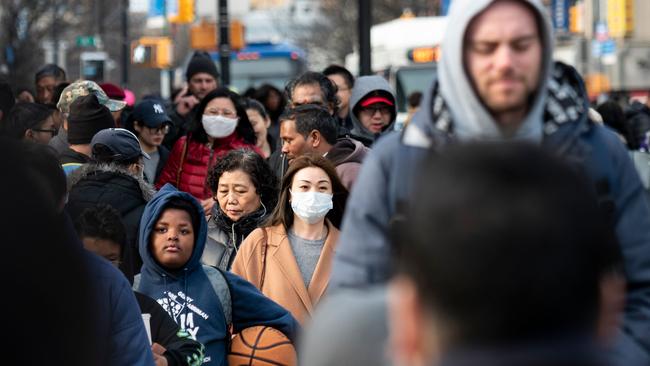Miranda Devine: Trump was correct to ask who needs the WHO in war on coronavirus?
He may have been branded a “racist” and “xenophobe”, but ignoring the World Health Organisation was the smartest thing Trump did in the war on coronavirus, writes Miranda Devine.
Rendezview
Don't miss out on the headlines from Rendezview. Followed categories will be added to My News.
Ignoring the World Health Organisation was the smartest thing US President Donald Trump did in the war against the coronavirus.
He was criticised as a “racist” and “xenophobe” for slapping travel restrictions on China on January 31, in defiance of WHO advice.
But health experts since have praised the action as crucial in slowing the spread of the virus in the US, where six people have died so far.
The Australian government followed suit the next day, but who knows if they would have stood firm against pressure from universities to allow thousands of Chinese students into the country, if not for Trump’s example.

A renowned germaphobe, the “Build-The-Wall” President who refuses to kowtow to China couldn’t be better suited handle a global pandemic, even if the WHO refuses to call it that.
It is hard to have much confidence in a UN health bureaucracy run by the former health minister of the Marxist regime of Ethiopia, who tried to appoint Zimbabwe’s dictator Robert Mugabe as a “goodwill ambassador” and seems to have a soft spot for China.
The Council on Foreign Relations think tank said last week that Tedros Adhanom Ghebreyesus “owes” China because it backed him in the election to become WHO director-general in 2017.
Tedros denies kowtowing to China. But, he advised governments not to restrict travel from China at the start of the epidemic, was slow to declare a global health emergency and praised China for its “transparency,” even though communist authorities had covered up the spread of the disease.
When the US and Australia imposed their China travel ban Tedros warned it would just increase “fear and stigma, with little public health benefit.”

But at a press conference on Saturday, Dr. Anthony Fauci, the highly respected long-term head of the National Institute of Allergy and Infectious Diseases, praised the “original decision that was made by the President …[that] prevented travel from China to the United States.
“If we had not done that, we would have had many, many more cases right here that we would have to be dealing with.”
The travel restrictions have bought valuable time to slow the spread of the virus and ease pressure on the health system before a vaccine is developed, which is at least 18 months away.
In the meantime, we each need to take responsibility for ourselves, stock up on food and medicines, and practice sensible “social distancing” to protect the elderly and infirm who are most at risk.
